In the world of vegetables, few can match the nutritional might and culinary versatility of broccoli and cauliflower. These cruciferous powerhouses are not only delicious additions to meals but also pack a punch when it comes to health benefits. In this article, we’ll dive deep into the world of broccoli and cauliflower, exploring their nutritional value, culinary potential, and why they should be a regular part of your diet.
Cruciferous vegetables, particularly broccoli and cauliflower, hold a unique position in the world of nutrition and culinary arts. Their reputation as nutritional powerhouses and versatile ingredients goes beyond the realms of taste and tradition. Let’s delve further into why these cruciferous wonders deserve a special place in your daily diet.
Nutritional Riches: Beyond Ordinary Greens
When we speak of broccoli and cauliflower, we’re not just talking about ordinary greens. These cruciferous vegetables boast a wealth of vitamins, minerals, and bioactive compounds that offer an array of health benefits.
Cancer Fighters: One of the most remarkable features of broccoli and cauliflower is their potential to combat cancer. They contain compounds like sulforaphane and indole-3-carbinol, which have been studied for their ability to inhibit the growth of cancer cells and promote their destruction.
Heart Health: Both vegetables contribute to heart health by providing fiber, which helps lower cholesterol levels, and antioxidants that protect blood vessels from damage.
Bone Health: The presence of vitamin K in broccoli and cauliflower is essential for bone health. It ensures proper calcium utilization, making these vegetables valuable in maintaining strong and healthy bones.
Digestive Support: With their high fiber content, these cruciferous veggies promote healthy digestion by preventing constipation and supporting a balanced gut microbiome.
Weight Management: Due to their fiber-rich nature and low-calorie content, broccoli and cauliflower can be helpful in weight management. They keep you feeling full and satisfied, reducing overall calorie intake.
Vitamin C Boost: Both vegetables are rich in vitamin C, a potent antioxidant that supports the immune system, skin health, and wound healing.
Culinary Versatility: A Chef’s Dream
From a culinary perspective, broccoli and cauliflower are dream ingredients for chefs and home cooks alike. Their mild, slightly nutty flavors make them perfect canvas for a wide range of culinary creations:
Pairing with Proteins: Whether it’s roasted with chicken, stirred into a beef stir-fry, or added to a vegetarian tofu curry, these vegetables complement a variety of protein sources.
Savory Sides: Steamed and served with a sprinkle of herbs, they make elegant and nutritious side dishes. Mashed cauliflower, with its creamy texture, is an excellent substitute for mashed potatoes.
Veggie-Centric Dishes: Broccoli and cauliflower can take center stage in dishes like vegetable gratins, where their natural sweetness and hearty texture shine through.
Raw Crunch: For a healthy snack, they can be sliced and dipped into hummus or tzatziki. Their natural crunch adds a refreshing element to any platter.
Soups and Stews: Pureed broccoli and cauliflower lend a velvety texture to soups and stews, adding depth and nutrition.
Global Appeal: These cruciferous vegetables are not confined to one cuisine. They seamlessly integrate into dishes from around the world, from Italian pasta primavera to Indian cauliflower curry.
In essence, broccoli and cauliflower are not just vegetables; they are culinary and nutritional gems that offer an incredible array of possibilities for both palate and health. Whether you’re seeking to boost your nutrient intake, savor new flavors, or explore innovative recipes, broccoli and cauliflower are there to elevate your culinary journey. So, whether you’re a seasoned chef or an aspiring home cook, make sure these cruciferous powerhouses become regular fixtures in your kitchen.
Should you desire more in-depth information, it’s available for your perusal on this page: Incredible health benefits of cauliflower: delicious & nutritious | The …
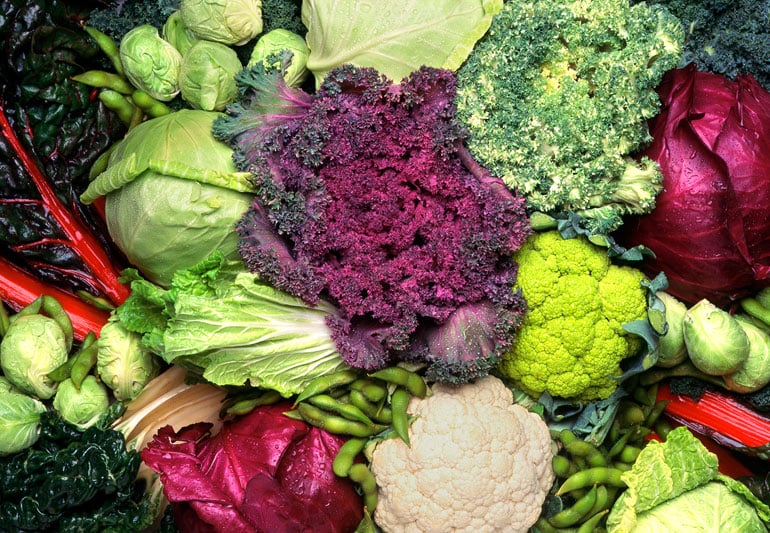
Broccoli is often hailed as one of the healthiest vegetables you can eat, and for good reason. It’s rich in a variety of nutrients, including:
Broccoli is often hailed as one of the healthiest vegetables you can eat, and for good reason. Its nutritional profile is truly impressive, making it a superstar in the world of vegetables. This green cruciferous vegetable is not only delicious but also packs a powerful punch of essential nutrients, including:
Vitamin C: Broccoli is an excellent source of vitamin C, known for its immune-boosting properties. A single serving of broccoli provides a significant portion of your daily recommended intake of this vital antioxidant, which helps protect your cells from damage and supports collagen production for healthy skin.
Fiber: High in dietary fiber, broccoli aids in digestion and helps maintain a healthy gut. Fiber also promotes a feeling of fullness, making it an excellent addition to your diet if you’re looking to manage your weight.
Vitamin K: Broccoli is a rich source of vitamin K, which plays a crucial role in blood clotting and bone health. Consuming broccoli regularly can contribute to maintaining strong bones and reducing the risk of fractures.
Folate: Folate, or vitamin B9, is essential for various bodily functions, including DNA synthesis and repair. It’s especially important for pregnant women, as it helps prevent neural tube defects in developing fetuses.
Potassium: Broccoli contains potassium, an electrolyte that helps regulate blood pressure, balance fluids, and support proper muscle and nerve function.
Iron: While not as high as in some other vegetables, broccoli still provides a source of iron, which is essential for transporting oxygen in the blood and maintaining overall energy levels.
Phytonutrients: Broccoli is rich in various phytonutrients, such as sulforaphane, which have potent antioxidant properties. These compounds have been studied for their potential cancer-fighting abilities and their role in reducing inflammation in the body.
Vitamin A: Broccoli contains beta-carotene, a precursor to vitamin A, which is crucial for maintaining healthy vision, skin, and a strong immune system.
Choline: Choline is an essential nutrient that plays a role in brain health, liver function, and metabolism. Broccoli contains a modest amount of choline, contributing to your daily intake.
Sulfur compounds: These compounds, found in broccoli and other cruciferous vegetables, are thought to have detoxifying and anti-cancer properties. They also give broccoli its distinct aroma and flavor.
Incorporating broccoli into your diet can offer a wide range of health benefits, from supporting your immune system to promoting bone health and aiding in digestion. Whether you enjoy it steamed, roasted, stir-fried, or as a crunchy addition to salads, broccoli stands as a nutritional powerhouse that deserves a prominent place on your plate.
You can also read more about this here: 15+ Best Green Vegetables: Powerhouse Greens You Need to Know

Broccoli is a potent source of vitamin C, known for its immune-boosting properties and its role in collagen production.
Broccoli, often celebrated for its vibrant green florets and distinctive appearance, is not just a visually appealing vegetable; it’s a nutritional powerhouse that offers a wealth of health benefits. Among its many virtues, broccoli stands out as a potent source of vitamin C, a nutrient renowned for its immune-boosting properties and its essential role in collagen production.
1. Immune Support: Vitamin C, also known as ascorbic acid, is a well-known guardian of our immune system. It plays a pivotal role in bolstering the body’s defenses against infections and illnesses. Broccoli’s generous vitamin C content makes it a formidable ally in strengthening the immune system. Regular consumption of broccoli can help your body fend off colds, flu, and other common ailments, enabling you to maintain good health throughout the year.
2. Collagen Production: Beyond its immune-boosting powers, vitamin C is a key player in the synthesis of collagen, a structural protein that forms the building blocks of our skin, bones, blood vessels, and connective tissues. Collagen is responsible for maintaining the elasticity and strength of our skin, making it a crucial component of youthful and healthy-looking skin. Broccoli’s contribution to collagen production can help support skin health, reduce the signs of aging, and promote wound healing.
3. Antioxidant Defense: Vitamin C is also a powerful antioxidant, which means it helps neutralize harmful free radicals in the body. Free radicals are unstable molecules that can cause oxidative stress and damage to our cells, contributing to various chronic diseases and aging. By scavenging these free radicals, vitamin C in broccoli acts as a protective shield against oxidative damage, helping to maintain the overall health of your body.
4. Nutrient Synergy: What makes broccoli even more remarkable is its synergy with other nutrients. It contains compounds like sulforaphane and glucosinolates, which have been associated with a reduced risk of chronic diseases, including certain cancers. Vitamin C in broccoli enhances the absorption of these beneficial compounds, making it an integral part of a well-rounded and health-promoting diet.
In conclusion, broccoli’s vitamin C content is not just a nutritional bonus; it’s a vital component of its health-promoting prowess. By incorporating broccoli into your regular meals, you’re not only savoring its delicious taste and satisfying crunch but also harnessing its immune-boosting, collagen-supporting, and antioxidant-rich properties. So, whether you steam it, roast it, or toss it into a salad, make sure to keep broccoli on your plate to reap the numerous health benefits it offers.
Explore this link for a more extensive examination of the topic: The Beginners Guide to Cruciferous Vegetables
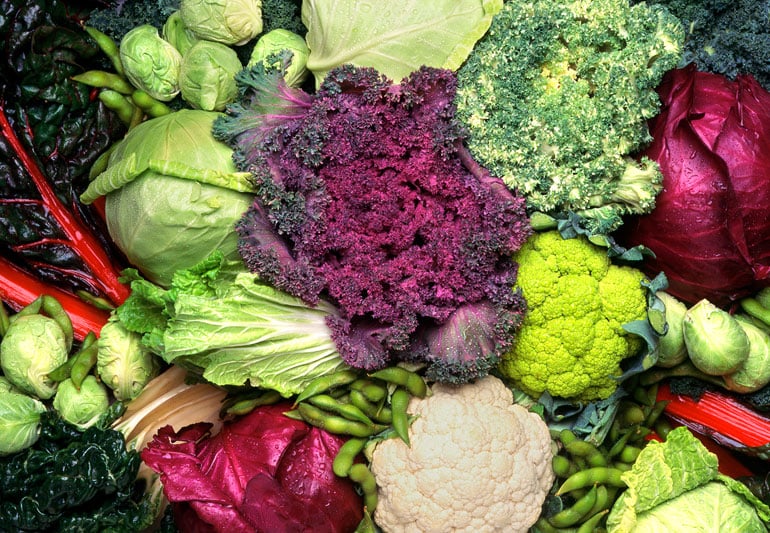
High in fiber, broccoli aids digestion, helps maintain a feeling of fullness, and supports heart health.
High in fiber, broccoli is a nutritional powerhouse that offers a range of benefits for your overall well-being. Its fiber content not only aids digestion but also provides several other advantages that promote a healthy lifestyle:
Weight Management: Broccoli’s fiber is a key player in weight management. The soluble fiber in broccoli forms a gel-like substance in your stomach, contributing to a feeling of fullness and reducing overeating. Incorporating broccoli into your meals can be a valuable ally in controlling your calorie intake.
Gut Health: The fiber in broccoli acts as a prebiotic, nourishing the beneficial bacteria in your gut. A healthy gut microbiome is associated with improved digestion, enhanced nutrient absorption, and even better mood regulation. Regular consumption of broccoli can contribute to a balanced and thriving gut environment.
Blood Sugar Control: Fiber plays a crucial role in regulating blood sugar levels. Broccoli’s fiber content, combined with its low glycemic index, can help prevent rapid spikes in blood sugar after meals. This can be particularly beneficial for individuals with diabetes or those at risk of developing the condition.
Heart Health: Beyond digestion, broccoli’s fiber content supports heart health in multiple ways. It helps lower levels of LDL cholesterol, often referred to as “bad” cholesterol, reducing the risk of cardiovascular diseases. Additionally, fiber can help manage blood pressure, another vital aspect of heart health.
Digestive Regularity: Broccoli’s fiber adds bulk to your stool, promoting regular bowel movements and preventing constipation. A well-functioning digestive system is essential for nutrient absorption and overall comfort.
Nutrient Density: Broccoli is not only a fantastic source of fiber but also a treasure trove of vitamins, minerals, and antioxidants. It contains vitamins C, K, and A, as well as folate, potassium, and phytonutrients like sulforaphane, which have been associated with various health benefits, including potential cancer-fighting properties.
Satiety and Snacking: Broccoli makes for a satisfying and nutritious snack. Whether dipped in hummus, added to a salad, or roasted with a touch of olive oil and seasonings, it’s a convenient way to curb between-meal hunger while nourishing your body.
Versatile Culinary Ingredient: The versatility of broccoli makes it easy to incorporate into a wide range of dishes. You can stir-fry it with other vegetables, steam it as a side dish, add it to soups and casseroles, or even use it as a pizza topping. Its mild, slightly nutty flavor pairs well with various seasonings and sauces.
In summary, broccoli’s high fiber content offers much more than just digestive benefits. It supports weight management, contributes to gut health, helps control blood sugar, and plays a pivotal role in heart health. This versatile vegetable is a valuable addition to any diet, offering a host of health advantages that can help you maintain a balanced and vibrant lifestyle.
To delve further into this matter, we encourage you to check out the additional resources provided here: Broccoli 101: Nutrition Facts and Health Benefits

Broccoli provides a significant dose of vitamin K, essential for bone health and blood clotting.
Broccoli is a nutritional powerhouse that offers a myriad of health benefits beyond its delicious taste and vibrant green color. One notable contribution is its significant dose of vitamin K. This essential nutrient plays a crucial role in maintaining bone health and promoting proper blood clotting.
In terms of bone health, vitamin K is like the hidden hero. It works behind the scenes, helping to regulate calcium in the body, ensuring it gets deposited in bones and teeth, where it’s needed for strength and density. Regular consumption of broccoli can help fortify your bones, reducing the risk of osteoporosis and fractures, especially as you age.
Beyond bone health, vitamin K also plays a vital role in blood clotting. Without it, even a minor injury could lead to excessive bleeding. By including broccoli in your diet, you’re not only enhancing your bone strength but also supporting your body’s ability to respond to injuries and maintain overall cardiovascular health.
So, the next time you savor a serving of broccoli, remember that you’re not just enjoying its delicious taste and satisfying crunch; you’re also investing in the well-being of your bones and ensuring your body can respond effectively to unexpected challenges.
To delve further into this matter, we encourage you to check out the additional resources provided here: What Do These 5 Veggies Have in Common? They’re Nutritional …
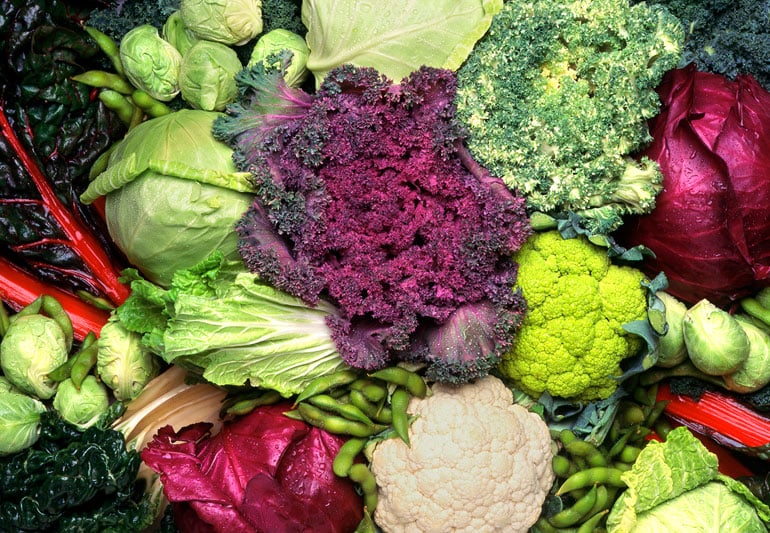
Folate is crucial for cell division and DNA synthesis, making it vital during pregnancy.
Folate, often referred to as vitamin B9, plays a pivotal role in the intricate processes of cell division and DNA synthesis within our bodies. While its significance extends beyond a single aspect of health, it is particularly indispensable during pregnancy, where its role becomes even more pronounced and crucial.
During pregnancy, a woman’s body undergoes remarkable changes to support the growth and development of a new life. Folate steps into the spotlight as a key player in this journey. It is essential for the formation of the neural tube in the developing fetus during the early stages of pregnancy. This neural tube eventually develops into the baby’s brain and spinal cord. Adequate folate intake in the early weeks of pregnancy significantly reduces the risk of neural tube defects, which can have lifelong implications for the child’s health.
Beyond its role in preventing neural tube defects, folate continues to be a fundamental nutrient for the overall development of the baby. It supports the rapid cell division and tissue growth that occur throughout pregnancy. Additionally, folate aids in the formation of red blood cells, which are essential for delivering oxygen to both the mother and the developing fetus.
However, folate isn’t just important for the baby; it also supports the health of the mother. Pregnancy places increased demands on the mother’s body, and folate is crucial for her well-being as well. It helps in the production of DNA and RNA, which are necessary for various bodily functions, including the synthesis of new cells and tissues.
While natural sources of folate can be found in foods like leafy greens, legumes, and citrus fruits, it is often recommended that pregnant women take folic acid supplements to ensure they meet their increased folate requirements during pregnancy.
In conclusion, folate is an essential nutrient that plays a multifaceted role in our bodies, from supporting cell division and DNA synthesis to promoting the healthy development of a growing fetus during pregnancy. Its importance underscores the significance of proper nutrition and prenatal care for the well-being of both the mother and her child, emphasizing that folate is indeed a vital component of a healthy pregnancy journey.
For additional details, consider exploring the related content available here Broccoli 101: Nutrition Facts and Health Benefits

Broccoli contains various antioxidants, including sulforaphane, which may have cancer-fighting properties.
Broccoli: A Nutritional Powerhouse with Potential Cancer-Fighting Properties
Broccoli, often dubbed a superfood, is not only a delicious addition to your plate but also a nutritional powerhouse with potential cancer-fighting properties that should not be underestimated.
At the heart of its cancer-fighting potential lies a powerful antioxidant called sulforaphane. Research suggests that sulforaphane may play a significant role in combating cancer by helping to neutralize harmful free radicals in the body and promoting the elimination of potential carcinogens.
Moreover, sulforaphane has been linked to the activation of certain enzymes that aid in detoxification and may further reduce the risk of cancer development. These enzymes work to clear out toxins and protect the body’s cells from damage, reinforcing the body’s natural defenses against cancer.
But broccoli’s benefits don’t stop at sulforaphane. This cruciferous vegetable is a rich source of other antioxidants, including vitamin C and beta-carotene, which also contribute to its cancer-fighting potential. These antioxidants work in tandem to bolster the immune system and shield cells from oxidative stress, which can lead to cancer and other chronic diseases.
Incorporating broccoli into your diet is a simple yet effective way to harness these cancer-fighting properties. Whether steamed, roasted, added to stir-fries, or blended into soups, there are numerous delicious ways to enjoy the health benefits of this versatile vegetable. So, next time you’re planning your meals, make sure to include broccoli, and you’ll not only savor its delightful taste but also nourish your body with a formidable ally in the fight against cancer.
To expand your knowledge on this subject, make sure to read on at this location: Broccoli: A Multi-Faceted Vegetable for Health: An In-Depth Review …
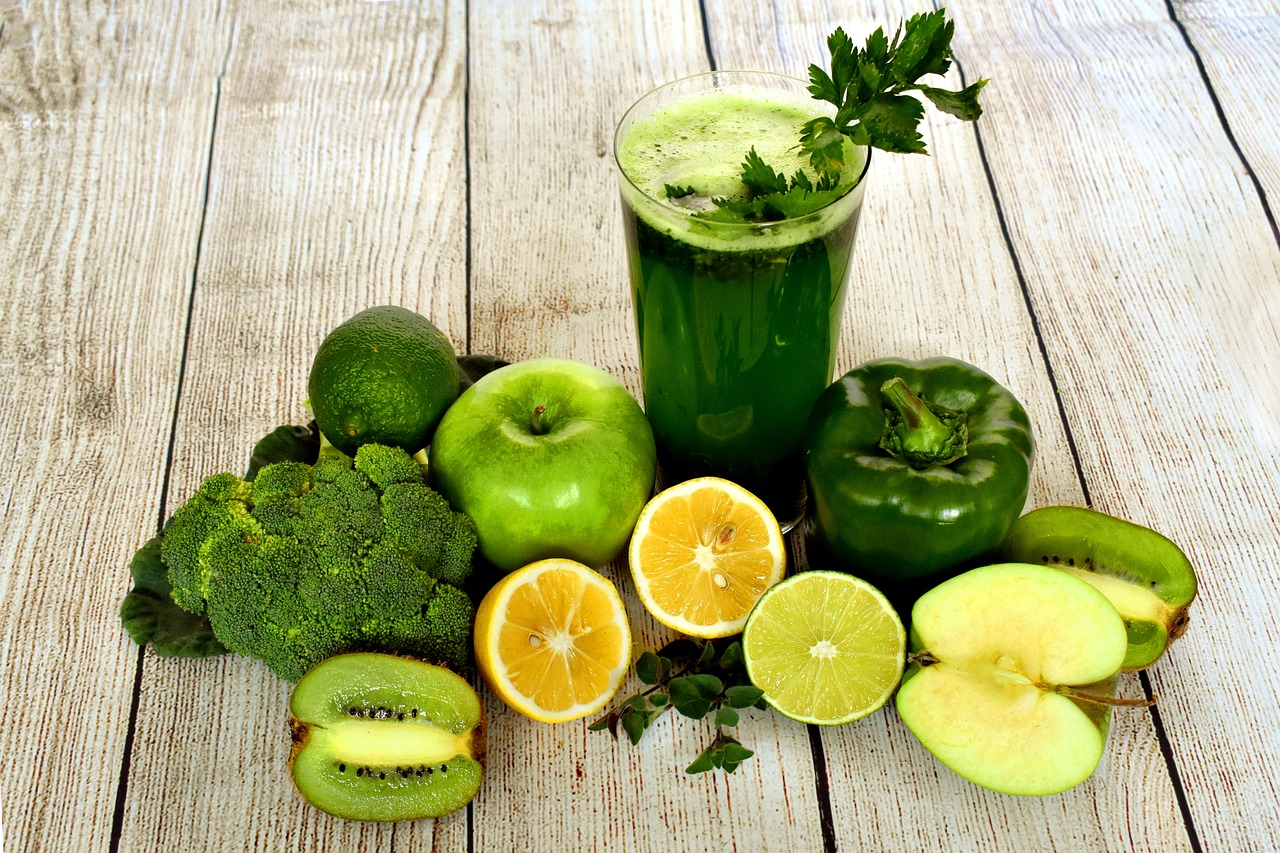
Cauliflower may be less colorful than its broccoli cousin, but it’s equally nutritious. Here’s what makes cauliflower a nutritional superstar:
Cauliflower may be less colorful than its broccoli cousin, but it’s equally nutritious. Here’s what makes cauliflower a nutritional superstar:
Low in Calories, High in Nutrients: One of cauliflower’s standout features is its low calorie content. It’s an excellent choice for those looking to manage their weight while still getting essential nutrients. Cauliflower provides a wealth of vitamins and minerals, including vitamin C, vitamin K, and folate.
Rich in Antioxidants: Cauliflower is packed with antioxidants that help protect your cells from oxidative stress. These antioxidants, such as glucosinolates and carotenoids, have been linked to a reduced risk of chronic diseases like cancer and heart disease.
Excellent Source of Fiber: Fiber is crucial for digestive health, and cauliflower is a good source of dietary fiber. Consuming fiber-rich foods like cauliflower can support regular bowel movements, aid in weight management, and help control blood sugar levels.
Versatile Culinary Ingredient: Much like zucchini and broccoli, cauliflower is incredibly versatile in the kitchen. You can enjoy it roasted, steamed, mashed, or even riced. Its neutral flavor allows it to absorb various seasonings and sauces, making it a fantastic addition to a wide range of dishes.
Low in Carbs: For those following low-carb or keto diets, cauliflower is a valuable substitute for high-carb foods. It can be used to create cauliflower rice, cauliflower pizza crust, and cauliflower mashed “potatoes,” offering a satisfying alternative to traditional carb-heavy options.
Supports Bone Health: Cauliflower is a good source of vitamin K, which plays a key role in bone health by helping with calcium absorption and bone mineralization. Including cauliflower in your diet can contribute to stronger and healthier bones.
Promotes Heart Health: The fiber, antioxidants, and potassium found in cauliflower all contribute to heart health. Fiber helps lower cholesterol levels, while antioxidants combat inflammation, and potassium helps regulate blood pressure.
Aids in Detoxification: Sulforaphane, a compound present in cauliflower, has been shown to support the body’s detoxification processes, assisting in the removal of harmful substances and potentially reducing the risk of certain cancers.
In summary, don’t underestimate cauliflower’s pale appearance; it’s a nutritional powerhouse with numerous health benefits. Whether you’re looking to improve your diet, maintain a healthy weight, or simply enjoy delicious and nutritious meals, cauliflower should definitely have a place in your kitchen and on your plate.
For a comprehensive look at this subject, we invite you to read more on this dedicated page: Broccoli 101: Nutrition Facts and Health Benefits
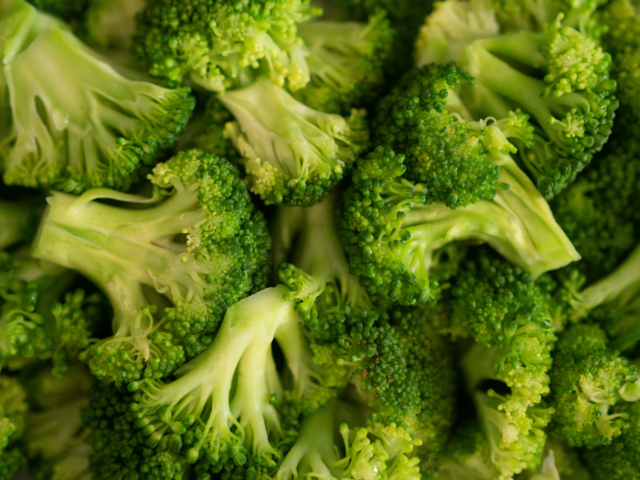
Like broccoli, cauliflower is rich in vitamin C, supporting the immune system and skin health.
Similar to broccoli, cauliflower is a nutritional powerhouse, boasting a high content of vitamin C. This essential nutrient plays a vital role in bolstering your immune system, helping your body ward off infections and illnesses. Additionally, vitamin C is a key player in maintaining the health and radiance of your skin. By including cauliflower in your diet, you’re not only enhancing your overall well-being but also giving your skin the nourishment it needs to stay vibrant and healthy. So, make sure to savor the delicious and nutritious cauliflower to reap these incredible health benefits.
Explore this link for a more extensive examination of the topic: Broccoli vs. Cauliflower: Is One Healthier?
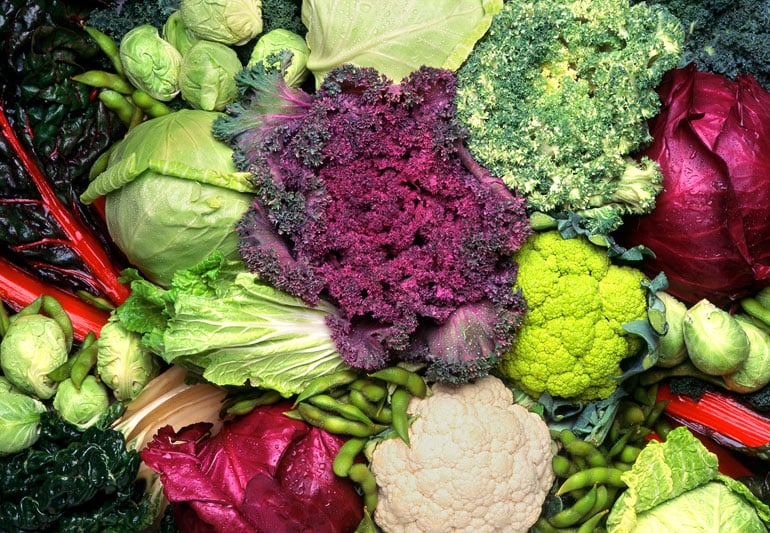
It’s a great source of fiber, aiding digestion and promoting a feeling of fullness.
“It’s a great source of fiber, aiding digestion and promoting a feeling of fullness. Incorporating fiber-rich foods like this into your diet not only supports healthy digestion but also helps in weight management by keeping hunger at bay. Additionally, the feeling of fullness can reduce the temptation to snack on less nutritious options, making it easier to maintain a balanced and nutritious diet.”
Additionally, you can find further information on this topic by visiting this page: Broccoli vs. Cauliflower: Is One Healthier?
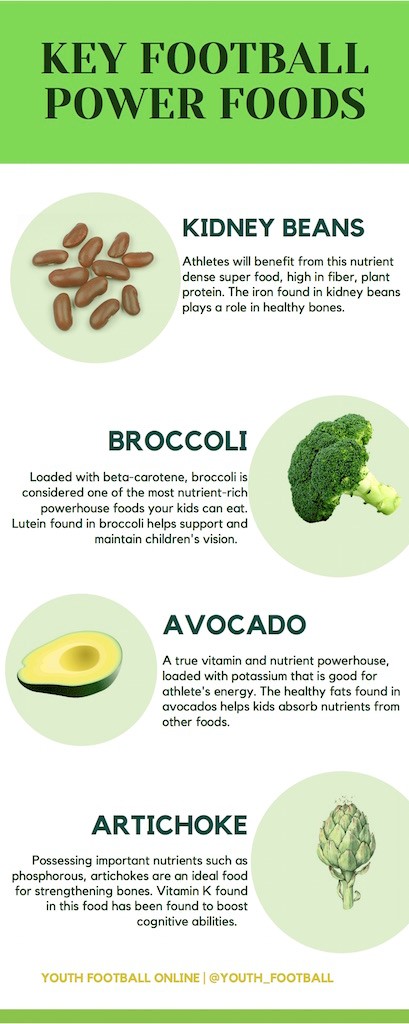
Cauliflower provides vitamin K, which is essential for bone health and blood clotting.
Cauliflower, often celebrated for its versatility in the kitchen, offers more than just culinary possibilities. It also serves as a natural source of essential nutrients, including vitamin K, that play a vital role in maintaining your overall health.
One standout benefit of cauliflower is its contribution to bone health. Vitamin K, found in abundance in cauliflower, is a key player in bone metabolism. It works behind the scenes, helping your body utilize calcium more effectively. This synergy between vitamin K and calcium promotes stronger bones and reduces the risk of fractures, making cauliflower a valuable addition to a bone-healthy diet.
Additionally, vitamin K is crucial for blood clotting, a fundamental process that prevents excessive bleeding when you get injured. It aids in the synthesis of clotting factors that quickly patch up wounds and stop bleeding. So, while you may not immediately associate cauliflower with injury recovery, it silently supports your body’s intricate mechanisms for maintaining your well-being.
Incorporating cauliflower into your meals not only broadens your culinary horizons but also contributes to your daily nutrient intake. Whether you enjoy it roasted, mashed, or in a creamy cauliflower soup, you’re not just relishing its taste but also nourishing your body with essential vitamin K, promoting bone strength, and ensuring your blood clotting mechanisms are ready to respond when needed. It’s a testament to the remarkable ways in which nature’s bounty can enhance our health while tantalizing our taste buds.
Additionally, you can find further information on this topic by visiting this page: What Do These 5 Veggies Have in Common? They’re Nutritional …

Choline is important for brain health and is found in significant amounts in cauliflower.
Choline, a lesser-known but essential nutrient, plays a crucial role in brain health and overall well-being. Among the various dietary sources of choline, cauliflower emerges as a standout contender, offering a multitude of benefits beyond its delectable taste and versatility in the kitchen.
First and foremost, choline is a precursor to acetylcholine, a neurotransmitter that plays a fundamental role in cognitive functions such as memory, learning, and muscle control. A deficiency in choline can have adverse effects on brain development, particularly during pregnancy and infancy, making it imperative for individuals of all ages to include this nutrient in their diets.
Cauliflower, a member of the cruciferous vegetable family, boasts not only a rich choline content but also a host of other nutrients. This unassuming vegetable is a nutritional powerhouse, providing vitamins, minerals, and antioxidants that promote overall health. In addition to choline, cauliflower is an excellent source of vitamin C, vitamin K, and fiber, all of which contribute to a well-rounded diet.
Incorporating cauliflower into your meals not only enhances your choline intake but also offers a range of culinary possibilities. You can enjoy it roasted, mashed, or even blended into creamy soups, adding a subtle nutty flavor and a creamy texture to your dishes. Its versatility makes it a favorite among those seeking to boost their choline intake while savoring delicious and nutritious meals.
In conclusion, recognizing the importance of choline for brain health underscores the significance of incorporating choline-rich foods like cauliflower into your diet. This unassuming vegetable goes beyond its taste and texture, serving as a valuable ally in promoting cognitive function and overall well-being. So, whether you’re a fan of cauliflower or looking for a reason to include it in your meals, remember that it’s not just a tasty addition but also a vital contributor to your brain’s health and vitality.
Explore this link for a more extensive examination of the topic: 16 Foods That Are High in Choline
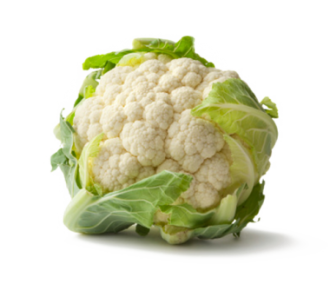
These sulfur-containing compounds in cauliflower have been studied for their potential cancer-fighting properties.
These sulfur-containing compounds in cauliflower have been studied for their potential cancer-fighting properties, shedding light on the remarkable health benefits of this cruciferous vegetable. While the exact mechanisms are still under investigation, research has shown promising results that suggest cauliflower may play a pivotal role in cancer prevention and treatment.
One of the sulfur compounds found in cauliflower, sulforaphane, has garnered significant attention in the scientific community. Studies have revealed that sulforaphane may help to inhibit the growth of cancer cells and even induce their self-destruction, a process known as apoptosis. This suggests that regularly incorporating cauliflower into one’s diet may serve as a natural defense against various types of cancer, including breast, prostate, and colon cancer.
Furthermore, cauliflower’s sulfur compounds are believed to assist in the detoxification processes within the body. They enhance the liver’s ability to neutralize and remove carcinogenic substances and toxins, reducing the risk of cancer development. This detoxifying effect not only promotes overall well-being but also strengthens the body’s resilience against environmental factors that can trigger cancer.
Moreover, cauliflower’s cancer-fighting potential extends beyond its sulfur compounds. It is rich in antioxidants, such as vitamin C and beta-carotene, which protect cells from oxidative damage and DNA mutations, reducing the likelihood of cancer initiation. Additionally, the fiber content in cauliflower supports a healthy digestive system, which is crucial for preventing colon cancer.
Incorporating cauliflower into a balanced diet is a simple and delicious way to harness its cancer-fighting benefits. Whether enjoyed steamed, roasted, mashed, or blended into soups, this versatile vegetable can be a valuable addition to a cancer-preventive nutrition plan. While more research is needed to fully understand the extent of cauliflower’s cancer-fighting properties, current evidence suggests that it can be a flavorful ally in the battle against this devastating disease. So, remember to include cauliflower in your meals and take a step toward a healthier, cancer-resistant lifestyle.
Don’t stop here; you can continue your exploration by following this link for more details: Cruciferous Vegetables: Health Benefits, Nutrients per Serving …
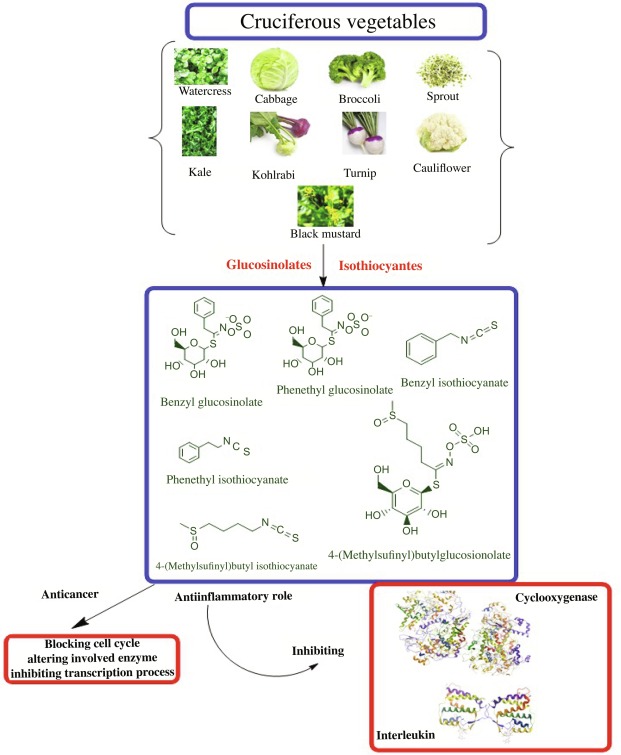
Beyond their nutritional value, broccoli and cauliflower are celebrated for their culinary adaptability:
Beyond their nutritional value, broccoli and cauliflower are celebrated for their culinary adaptability, transforming the mundane act of eating into a thrilling gastronomic adventure. These versatile cruciferous vegetables have earned their place as culinary chameleons, capable of seamlessly integrating into a wide array of dishes, styles, and cuisines.
In the realm of healthy eating, broccoli and cauliflower shine as virtuosos. Whether you’re pursuing a low-carb lifestyle, a plant-based diet, or simply seeking a delicious way to incorporate more veggies into your meals, these cruciferous wonders are your trusty allies. Roasted to perfection with a sprinkle of olive oil and your favorite seasonings, they become crispy, savory nuggets that even the staunchest veggie skeptics will savor.
But their prowess extends well beyond the realm of health-conscious dining. Broccoli and cauliflower, with their subtly earthy and slightly nutty flavors, can effortlessly take on the mantle of comfort food. Mashed and whipped with butter and cream, they become luxurious side dishes that rival the creamiest of mashed potatoes. In fact, cauliflower is often employed as a clever stand-in for starchy ingredients in dishes like cauliflower rice or cauliflower pizza crust, proving that they can be both indulgent and wholesome simultaneously.
The adaptability of these vegetables isn’t limited to the Western culinary tradition. In Asian cuisine, they add a delightful crunch to stir-fries and a wholesome component to soups and curries. Broccoli florets soak up vibrant sauces like sponges, while cauliflower’s mild taste serves as a perfect canvas for bold, spicy flavors.
Their versatility extends to textures as well. Broccoli can be enjoyed tender-crisp in salads or slightly charred and smoky from the grill. Cauliflower, on the other hand, can be grated into a rice-like texture for sushi rolls or turned into velvety purees for creamy soups and sauces. Their adaptability ensures they’re equally at home in a quick weeknight stir-fry as they are in an elaborate holiday feast.
Moreover, these cruciferous wonders are champions of sustainability. Their hardiness makes them easy to grow in various climates, reducing the carbon footprint associated with food production. Their ability to thrive in diverse conditions makes them accessible and affordable, contributing to a more equitable food system.
In conclusion, broccoli and cauliflower are more than just nutritional powerhouses; they’re culinary chameleons that elevate our meals to new heights. With their adaptability, they transcend borders, diets, and culinary traditions, making them an essential ingredient in any kitchen, both for their taste and their role in sustainable eating. So, the next time you see these humble vegetables in the market, remember that they have the power to transform your culinary journey into a delightful, ever-evolving adventure.
Should you desire more in-depth information, it’s available for your perusal on this page: The Benefits of Cauliflower & How to Prepare This Versatile Veggie
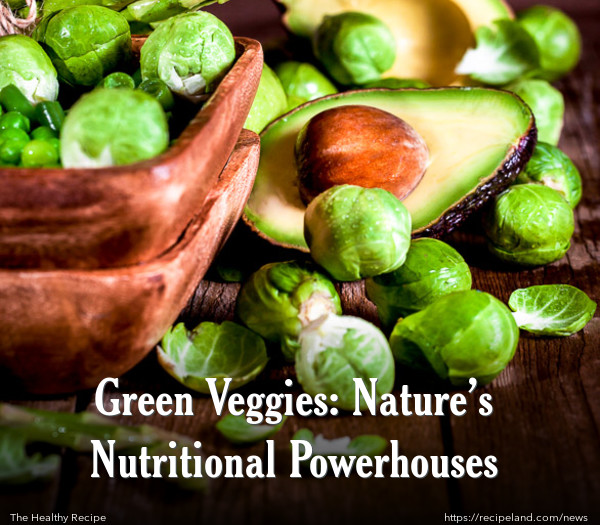
Both vegetables shine when steamed or roasted. A simple drizzle of olive oil, a sprinkle of salt and pepper, and a trip to the oven result in tender, caramelized florets that make a delicious side dish.
Moreover, steaming or roasting these vegetables is a culinary delight that brings out their natural flavors and textures. A gentle drizzle of extra-virgin olive oil, a pinch of sea salt, and a dash of freshly ground black pepper elevate the experience. As they mingle in the oven’s heat, the result is a masterpiece of tenderness and caramelization. Each floret, perfectly bronzed and rich in flavor, transforms into a delectable side dish that’s sure to be a highlight of any meal.
Should you desire more in-depth information, it’s available for your perusal on this page: Broccoli 101: Nutrition Facts and Health Benefits

Boiled and mashed broccoli or cauliflower can serve as healthier alternatives to traditional mashed potatoes. They’re equally creamy and comforting.
Boiled and mashed broccoli or cauliflower can serve as healthier alternatives to traditional mashed potatoes. They’re equally creamy and comforting, providing a guilt-free way to indulge in your favorite comfort food while boosting your nutrient intake.
These cruciferous vegetable substitutes not only mimic the smooth texture of mashed potatoes but also offer a spectrum of vitamins, minerals, and antioxidants. Broccoli, for instance, is rich in vitamin C, fiber, and folate, while cauliflower boasts a healthy dose of vitamin K and B vitamins. By making this simple swap, you not only reduce your carbohydrate intake but also increase your vegetable servings, promoting better overall health.
What’s more, mashed broccoli or cauliflower can be customized to suit your taste. Add garlic for extra flavor, blend in some grated cheese for creaminess, or toss in fresh herbs for a burst of freshness. These versatile alternatives allow you to experiment with a range of flavors and textures, ensuring that your meals are both nutritious and delicious.
Whether you’re aiming to reduce your carb intake, incorporate more vegetables into your diet, or simply enjoy a lighter version of a beloved comfort food, mashed broccoli or cauliflower opens the door to a world of culinary creativity without sacrificing the satisfaction of a creamy, comforting dish. So, next time you’re in the mood for mashed potatoes, consider giving these nutritious alternatives a try. Your taste buds and your health will thank you.
For additional details, consider exploring the related content available here Cauliflower: A powerhouse of nutrients – Mayo Clinic Health System

Broccoli and cauliflower add crunch and flavor to stir-fries and curries. Their ability to absorb sauces and spices makes them excellent companions in these dishes.
Enhancing Stir-Fries and Curries: The Cruciferous Touch
When it comes to stir-fries and curries, the inclusion of broccoli and cauliflower goes beyond mere texture and flavor; it’s about elevating these dishes to new heights of taste and nutrition. Their unique characteristics make them invaluable ingredients in these culinary creations, enhancing both the visual appeal and the overall dining experience.
Texture and Crunch: In the world of stir-fries, where contrasting textures are key, broccoli and cauliflower shine. Their crisp, crunchy florets provide a delightful contrast to tender pieces of meat, tofu, or other vegetables. This textural interplay keeps every bite interesting and satisfying.
Absorbing Flavors: One of the remarkable qualities of these cruciferous vegetables is their ability to absorb the flavors of sauces and spices. This absorbency means that when you add broccoli or cauliflower to your stir-fry or curry, they don’t just sit on the sidelines; they become active participants in the flavor infusion process.
Stir-Fries: In stir-fries, broccoli and cauliflower act as flavor sponges, soaking up the savory goodness of soy sauce, garlic, ginger, and other seasonings. As you stir-fry them alongside your choice of protein and additional vegetables, these cruciferous gems release their absorbed flavors back into the dish, creating a harmonious blend of tastes.
Curries: In curries, broccoli and cauliflower integrate seamlessly with the aromatic spices and creamy sauces that characterize these dishes. As they simmer in the curry sauce, they absorb the complex flavors, infusing every bite with a rich and balanced taste profile.
Nutritional Boost: Beyond their culinary contributions, broccoli and cauliflower bring a substantial nutritional boost to stir-fries and curries. They are excellent sources of vitamins, minerals, and antioxidants that complement the overall healthiness of these dishes. This combination of flavor enhancement and nutrition makes them valuable assets to those seeking both delicious and wholesome meals.
Colorful Appeal: In addition to their flavor and nutritional benefits, these vegetables bring a burst of color to your stir-fries and curries. Broccoli’s vibrant green and cauliflower’s snowy white create a visually appealing contrast that adds to the overall presentation of your dish.
Global Fusion: The versatility of broccoli and cauliflower extends across various cuisines. They can effortlessly transition from an Asian-inspired stir-fry with soy sauce and sesame oil to an Indian curry infused with spices like turmeric, cumin, and coriander. This adaptability makes them ideal companions for culinary experimentation and fusion cuisine.
In summary, broccoli and cauliflower are not just ordinary vegetables tossed into stir-fries and curries; they are culinary assets that enhance the depth of flavor, texture, and nutrition in these dishes. Their unique ability to absorb and release the essence of the sauces and spices makes them stand out as essential ingredients in these global favorites. So, the next time you embark on a stir-fry adventure or simmer a fragrant curry, remember the dynamic role that broccoli and cauliflower play in elevating your meal to a delicious and nutritious masterpiece.
Should you desire more in-depth information, it’s available for your perusal on this page: Curry Cabbage and Cauliflower Stir Fry

Grilling or charring broccoli and cauliflower creates a smoky depth of flavor that elevates salads and grain bowls.
Grilling or charring broccoli and cauliflower is a culinary technique that not only transforms these cruciferous vegetables but also imparts a smoky depth of flavor that can take your salads and grain bowls to a whole new level of deliciousness.
1. Enhanced Nutty Notes: When you subject broccoli and cauliflower to the intense heat of a grill or an open flame, their natural sugars caramelize, creating a delightful nuttiness that beautifully complements their earthy undertones. The result is a smoky, slightly sweet flavor that pairs exquisitely with other ingredients in your salad or grain bowl.
2. Textural Contrast: Grilling or charring adds a layer of complexity to the texture of broccoli and cauliflower. While the exterior becomes slightly crispy and charred, the interior remains tender, creating a captivating contrast that’s both satisfying to the palate and visually appealing. It’s a delightful surprise with every bite.
3. Versatile Pairing: Grilled or charred broccoli and cauliflower are versatile additions to a wide range of dishes. Toss them into a hearty grain bowl for a satisfying and nutritious meal. Their smokiness pairs wonderfully with grains like quinoa or farro, and they can easily be combined with proteins like grilled chicken, shrimp, or tofu for a complete and balanced dish.
4. Salad Sensation: Incorporating grilled or charred broccoli and cauliflower into your salads elevates the overall experience. Their robust flavor stands up well to creamy dressings, tangy vinaigrettes, or even a drizzle of balsamic reduction. You can also experiment with adding nuts, seeds, dried fruits, and fresh herbs for a salad bursting with complexity.
5. Flavorful Complements: These charred vegetables play well with a variety of complementary ingredients. Try mixing them with roasted red peppers, sundried tomatoes, or olives for a Mediterranean twist. Or pair them with avocados, citrus segments, and a zesty dressing for a refreshing and summery salad.
6. Creative Seasoning: Grilling or charring offers an excellent opportunity to experiment with seasonings. You can enhance the smoky flavor with spices like smoked paprika, cumin, or chili powder. A drizzle of olive oil and a sprinkle of sea salt and freshly ground black pepper can also go a long way in enhancing the overall taste.
7. Meal Prep Excellence: Grilled or charred broccoli and cauliflower can be prepared in advance and stored in the refrigerator, making them an ideal addition to your meal prep routine. They retain their flavor and texture well, making it easy to assemble quick, healthy meals throughout the week.
Incorporating grilled or charred broccoli and cauliflower into your culinary repertoire can truly transform your salads and grain bowls into gourmet experiences. This cooking technique not only enhances their flavor but also adds complexity, texture, and versatility to your dishes, making them a must-try for any home cook looking to elevate their creations.
Should you desire more in-depth information, it’s available for your perusal on this page: Roasted Broccoli Recipe – Perfect Every Time! – Rachel Cooks®

Both vegetables can be pureed and added to soups and casseroles for a creamy, thick texture and an extra nutrient boost.
Indeed, both of these versatile vegetables, known for their distinct flavors and vibrant colors, have the remarkable ability to enhance the texture and nutritional value of a wide range of dishes, particularly when transformed into a silky puree. Let’s delve into the world of culinary creativity and explore how pureed carrots and sweet potatoes can elevate your soups, casseroles, and more.
1. Velvety Soups: When pureed, both carrots and sweet potatoes can turn a simple soup into a luxurious culinary experience. Their natural sweetness and creamy consistency add depth and richness to the broth. A carrot puree can lend a bright, orange hue to your soup, while sweet potato puree contributes a warm, inviting color. The result is not only visually appealing but also a symphony of flavors that dance on your palate. Whether it’s a carrot and ginger bisque or a sweet potato and coconut chowder, these purees are your ticket to a velvety, satisfying bowl of goodness.
2. Creamy Casseroles: Pureed carrots and sweet potatoes are secret weapons in creating creamy casseroles without the need for heavy cream or excessive cheese. They provide a natural thickness and body to the dish, binding all the ingredients together. Carrot puree can infuse your casseroles with a subtle sweetness, while sweet potato puree adds a delightful earthy flavor. Whether you’re crafting a classic shepherd’s pie or a vegetable lasagna, these purees are your allies in achieving a luscious, satisfying texture.
3. Nutrient Boost: Beyond their culinary magic, carrot and sweet potato purees offer a significant nutrient boost to your dishes. Carrots are renowned for their high vitamin A content, promoting eye health and immune function. Meanwhile, sweet potatoes bring an abundance of vitamins, minerals, and dietary fiber to the table, supporting overall well-being. By incorporating these purees, you not only enhance the taste but also fortify your meals with essential nutrients.
4. Versatile Applications: The beauty of carrot and sweet potato purees lies in their versatility. They can be seamlessly integrated into both savory and sweet dishes. For instance, sweet potato puree can enrich a creamy risotto or a decadent dessert, while carrot puree can add a delightful twist to your morning muffins or pancakes. Their adaptability knows no bounds, making them indispensable ingredients in your culinary repertoire.
In summary, the art of pureeing carrots and sweet potatoes is a culinary adventure waiting to unfold. With their capacity to lend creaminess, flavor, and a nutrient boost to your soups, casseroles, and other dishes, these purees are culinary gems worth exploring. So, the next time you embark on a cooking journey, consider the transformative power of carrot and sweet potato purees, and let them elevate your meals to new heights of taste and nutrition.
For additional details, consider exploring the related content available here How to eat more greens and cruciferous vegetables (with 25 recipes …
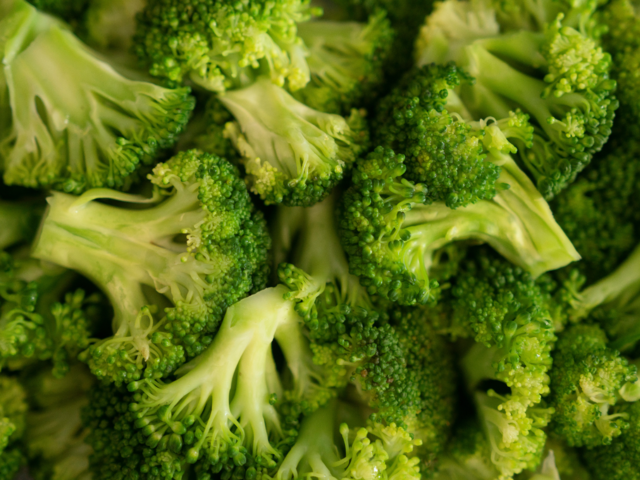
Broccoli and cauliflower, with their remarkable nutrient profiles and culinary adaptability, deserve a prominent place on your plate. Whether you enjoy them steamed, roasted, mashed, or in a spicy stir-fry, these cruciferous vegetables offer a delightful combination of health benefits and delicious flavors. Embrace the power of broccoli and cauliflower in your kitchen, and let their versatility and nutritional might enrich your meals and your well-being.
Broccoli and cauliflower, often regarded as the dynamic duo of cruciferous vegetables, are culinary gems that truly deserve a prominent place on your plate. Their remarkable nutrient profiles, culinary adaptability, and numerous health benefits make them a delightful addition to your diet. Here’s why you should wholeheartedly embrace the power of broccoli and cauliflower in your kitchen:
Nutrient-Rich Powerhouses: These cruciferous veggies are nutrient-rich powerhouses, offering a wealth of vitamins, minerals, and antioxidants. Broccoli is a superb source of vitamin C, vitamin K, and folate, while cauliflower boasts an array of B-vitamins, vitamin C, and choline. Both vegetables are rich in dietary fiber and provide essential minerals like potassium and manganese.
Cancer-Fighting Properties: Broccoli and cauliflower contain compounds, such as sulforaphane and glucosinolates, which have been linked to potential cancer-fighting properties. These substances are believed to help detoxify the body, inhibit the growth of cancer cells, and reduce inflammation.
Heart-Healthy Choices: Both vegetables support heart health by promoting healthy cholesterol levels and reducing the risk of heart disease. Their fiber content helps lower LDL (“bad”) cholesterol, while their potassium content assists in regulating blood pressure.
Digestive Health: Broccoli and cauliflower are packed with dietary fiber, which aids in digestion and promotes regular bowel movements. Fiber also nurtures a healthy gut microbiome, fostering beneficial bacteria that contribute to overall digestive well-being.
Weight Management: Their fiber and low-calorie content make broccoli and cauliflower excellent choices for those aiming to manage their weight. They can help you feel full and satisfied while consuming fewer calories.
Culinary Versatility: These vegetables are incredibly versatile in the kitchen. You can enjoy them in numerous ways: steamed, roasted, sautéed, mashed, riced, or even as a pizza crust alternative. Their mild flavors make them adaptable to a wide range of recipes, from comforting casseroles to spicy stir-fries.
Colorful Variety: Broccoli and cauliflower come in various colorful varieties, such as purple cauliflower and broccoli rabe. Experimenting with different types can add visual appeal to your dishes and introduce unique flavor profiles.
Sustainable Choices: Choosing broccoli and cauliflower is also an eco-friendly decision. They have relatively low environmental impacts compared to some other crops, making them environmentally responsible choices for your plate.
Incorporating broccoli and cauliflower into your meals can be a simple yet effective way to enhance both the flavor and nutrition of your diet. These cruciferous vegetables offer a harmonious blend of taste and health benefits, making them valuable allies in your culinary journey toward a healthier and more vibrant life. So, don’t hesitate to let these versatile veggies take center stage in your cooking and enrich both your meals and your well-being.
Explore this link for a more extensive examination of the topic: Best Foods to Aid in Losing Weight Safely – chettinadurocks.com
More links
To delve further into this matter, we encourage you to check out the additional resources provided here: Broccoli 101: Nutrition Facts and Health Benefits
